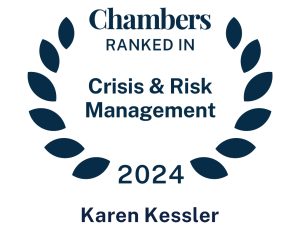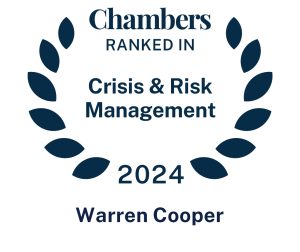Maybe – but probably not during a crisis.
Recently, a client in manufacturing whose brand was under reputational attack wanted to announce that the company had won a website design award. The client had read on a marketing blog that press releases about awards and recognitions can enhance a company’s reputation, attract customers and boost its bottom line. They wanted us to issue a press release about the award to deflect the wave of negative media coverage and critical social media posts.
Perhaps there are industries in which the tactic of countering bad press with good news works, but we haven’t discovered one yet. So, we tried to talk them out of it. Here’s why:
The audience following the crisis story isn’t the audience for the award announcement
General interest media outlets (other than hyperlocal outlets) typically have little interest in reporting news of awards and recognitions because they know that “news” is of little interest to their readers. Special interest blogs and trade journals might be inclined to report such awards (if they’re relevant to the industry) but the people giving your company a hard time are probably not reading those journals.
If the crisis issue is being covered by local or regional general interest media, it’s because the editors believe the crisis is of interest to their readers, the wider public. The only reason a general interest media outlet would cover the award would be an editor’s belief that doing so would build or re-engage the audience for its successful coverage of the crisis. They know readers can never get enough of the thrashing the public gives a company in crisis. Moreover, the editors see the opportunity to increase “clicks” on such stories as a means to more online advertising revenues.
The result: sharing the news about the award delivers more, not less, oxygen to the flame we’ve been trying to smother.
The award is unrelated to the matter at the core of the crisis
If there’s little or no relationship between the award (e.g., website design) and the basis of the criticism (e.g., an employment issue) then announcing it can only artificially be linked to the issue. As above, that just gives a news outlets a “hook” to repeat the HR claims. On the other hand, if your company is facing criticism about the lack of diversity among its leadership team and you receive an award for diversity efforts that appears to support the opposite (e.g., showing that several individuals of color have been elevated to the C-Suite and that a significant number of members of color have been added to the board of directors), there may be some justification for seeking to have that news out there.
Be aware, however, that the issuing agency may not take kindly to your using them to wage what might become a legal battle in the press. If you determine that it’s in your best interest to use the award that way, you should first establish that the organization behind the award is aware of the crisis issue. The worst outcome would be for the issuing entity to revoke the award after you bring attention to it. There’s no question THAT would be the next headline.
A press release isn’t going to help.
If you decide to try to use the award to counter the criticism to some degree, writing a press release and engaging a media service to mass distribute it to a thousand outlets isn’t the way to go.
First, most press releases contain more information than you probably want to share with an outlet that is already covering the crisis. Doing so just gives the reporter (if they’re interested in covering the award news at all) a lot of content to wrap around a rehash of the original story. They’ll pick and choose among what you provide to refresh the narrative they’ve already been writing.
A better, more impactful approach would be to share the award information in a short statement to those reporters, expecting they’ll add it to, or embed it in, their coverage of the crisis. Include a link to the organization that issued the award, so they can check its credibility. Don’t give an interview just to share the award — the reporter will use the opportunity to try to draw you out on topics you don’t want to discuss. Again, it’s in your interest to first establish that the organization behind the award is aware of the crisis and won’t rescind it on that basis.
A widely distributed press release isn’t any better
If your crisis is being covered locally or regionally, don’t be suckered into using a service that maintains a worldwide media database and touts its ability to inexpensively spread your news release across the country (such as PR Newswire, Business Wire, PRWeb and others). They often promote their ability to target the distribution of your release in a way that shares it in ways that will be most impactful for your message. But unless you’re facing a crisis that has national implications, distributing the news widely and having it appear in relatively obscure outlets (e.g., the Union-Bulletin in Walla Walla, Washington) won’t serve your interests. It certainly won’t counter the impact of local/regional stories about the crisis. It’s cheaper (free, really) to simply send your concise statement to the relevant reporters in an email.
And if any far-flung outlet does its homework, you’ve just spread the bad news further afield.










